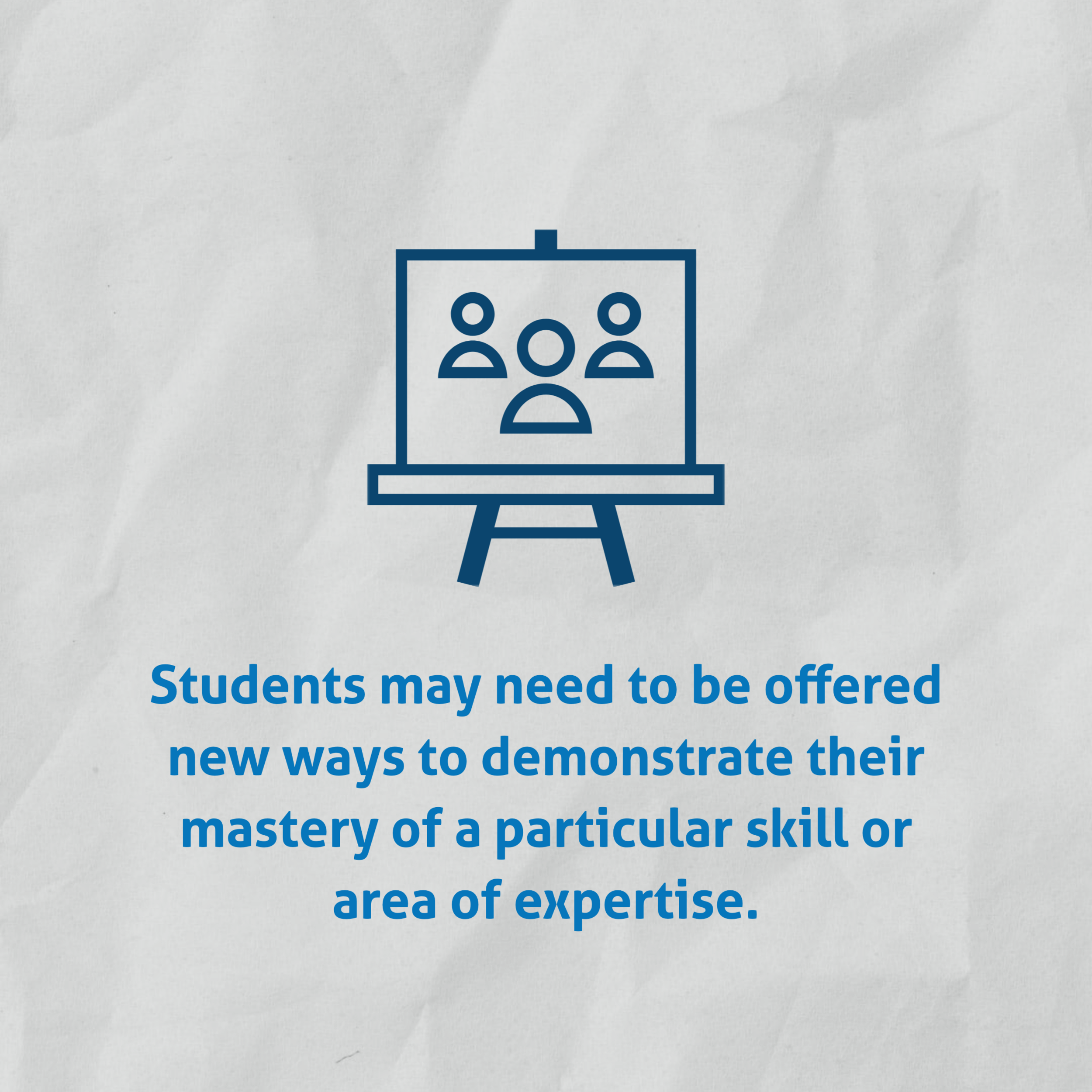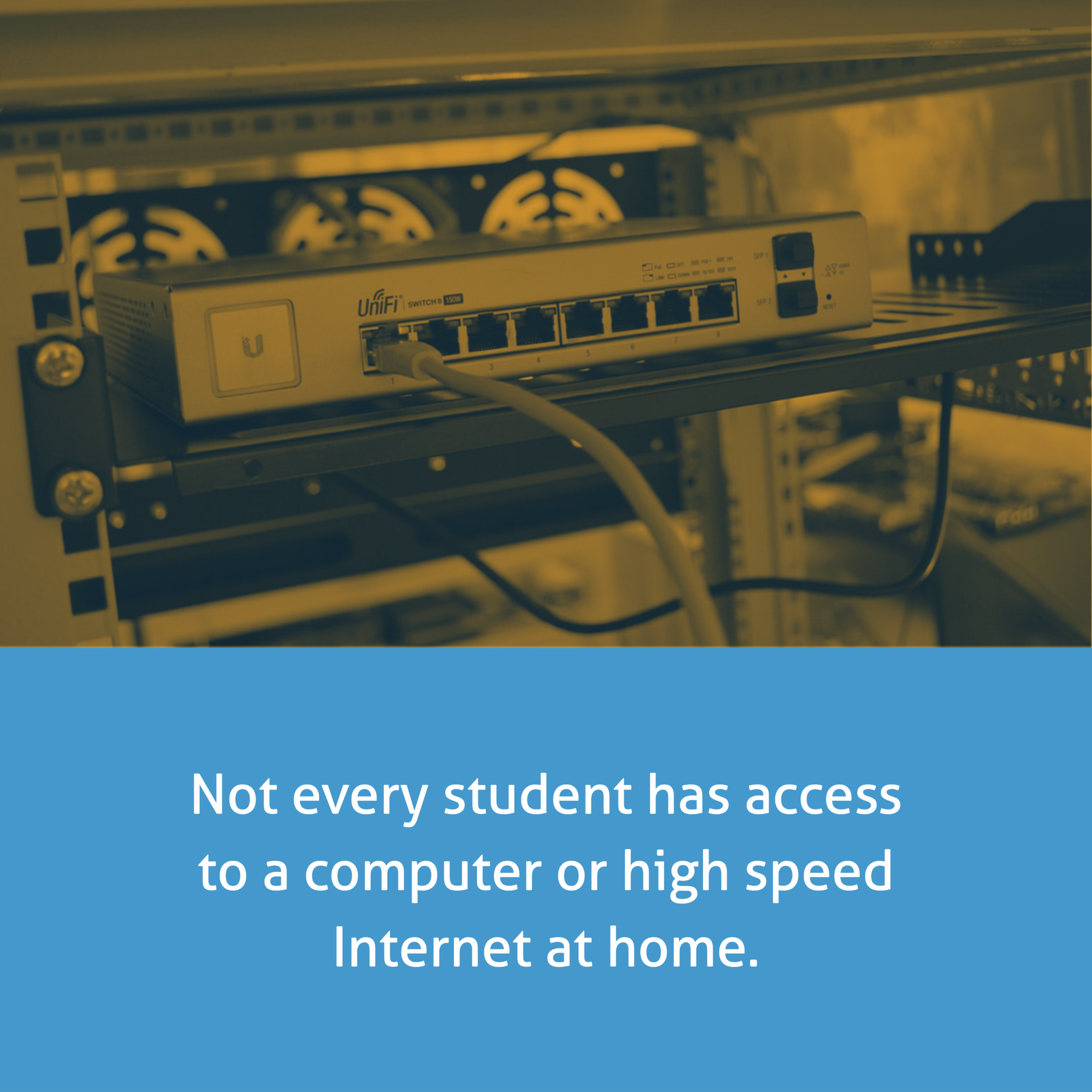Responding to COVID-19: Equity & Access
The coronavirus pandemic has everyone in business, academia and government shifting to remote work and online learning. The Centers of Excellence have been supporting that transition in the higher education sector, as rapid innovation born out of necessity becomes the norm. Making sure disadvantaged students get access to online resources is a core challenge.
Nate Humphrey is the Director for Workforce Education with the Washington State Board for Community & Technical Colleges, whose mission is to “ensure that the state has a robust pipeline of workers that are skilled in various occupations -- everything from IT, finance and business to healthcare, construction trades and agricultural programs as well.” He took some time to update us on the Board’s progress in reaching students and stakeholders online this year.
The work of Nate’s department is divided into four different sections: 1) workforce pathways, 2) work-based learning, 3) industry sectors and 4) student supports. Tasks include administration of Perkins funding from the federal government to support career and technical education (CTE), incumbent worker re-training, and economic development initiatives. Nate highlighted some key training and skills programs for dislocated workers. Basic food employment training and specific SNAP Employment & Training, for example, are getting new attention during the pandemic.
Overall, Nate described their adaptation in the past several weeks as a “triage response” in which the Board is “leveraging our convening power and our information dissemination power.” He said that workforce deans, directors and VPs are holding weekly calls to handle issues as they arise, and then get information out quickly to those who need it. Affinity groups are focused on helping colleges think through and share best practices about how to transform some of those especially ‘hard to convert’ classes, like in nursing, mechatronics and the construction trades, into online virtual and remote modalities. “We’ve always prided ourselves on being really in tune with ‘hands on’ and ‘face to face’ instruction that replicates or recreates the work environment,” says Nate. So the abrupt shift away from that is challenging at best.
Nate’s group is leading with a focus on racial equity, and has distributed a guidance document about “how colleges can provide for students’ needs around Internet access and access to equipment and hardware to be able to continue their education.” The pandemic has exposed the harsh realities of digital divide, which leaves behind those isolated without computers and quality Internet connections at home. They are disconnected from both school and the ability to work, even in campus work/study programs. Nate says they’re working with state agencies and legislators to advocate for students continuing to receive that support while the homestay order keeps them from working in their non-essential jobs.
January (Jan) Yoshiwara is Executive Director of the State Board for Community & Technical Colleges, and Nate tells us she’s a true champion on equity issues, making sure the professional development and technical college system is designed to serve all of our communities. That system already serves “a very vulnerable population” with more than quarter of Washingtonians eligible for some form of public assistance, despite the displays of tremendous wealth also seen in the state.
The emergency waiver that now allows veterans to continue to receive GI bill benefits for housing and living expenses while their college courses have migrated online is helpful. However Nate worries that the old discriminatory restrictions for veterans, that favor residential college with in person classes “will still be on the books when we get through this.”
Nate noted that “it takes a crisis to bring out the best” in people and foster a deepening of partnerships among organizations as they focus on urgent needs. “Numerous colleges stepped up early on and donated PPE or loaned their medical training equipment and hospital beds to local hospitals in their communities.” Manufacturing training programs have been modified “to be able to manufacture PPE while also providing a training environment.”
Nate offered a shout out to Mary Kaye Bredeson, Executive Director of the Center of Excellence for Aerospace and Advanced Manufacturing, who recently leveraged resources from around the country including AMTEC in Owensboro, Kentucky, to negotiate reduced rate access to an online curriculum in mechatronics.
Mark Jenkins, Director of Educational Technology & Open Education at the State Board focuses on open education resources and educational technologies (edtech). He’s working with tech vendors “specifically on our lock for proctored exams,” so that the colleges could have access to an expanded contracting process to meet their immediate needs for this semester.
Finally, at the Allied Health COE, Dan Ferguson is using his convening power to “pull together nursing faculty at all levels of nursing, nursing assisting, practical nursing and RNs to work through the challenges of shifting to online education.” Nate says that some of the best practices in ‘space shifting’ are going to be around setting expectations for faculty and other professionals and maintaining the rigor and quality that post-secondary technical education in Washington is known for.
This transition includes accessing the expertise of training partners in the business world and apprenticeship sponsors. Students may need to be offered new ways to demonstrate their mastery of a particular skill or area of expertise. Yet Nate also suggests being realistic about the fact that there’s not really a good virtual way to teach correct handling of a torque wrench.
Mr. Humphrey refers readers to a website where his group has compiled some remote and distance learning resources for colleges and the greater community: www.sbctc.edu/coronavirus/default.aspx. He also recommended the growing contacts and resources list launched by Kristi Wellington-Baker of the Student Success Center.




